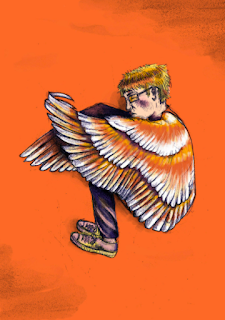Essay -- A Spoon Full of Fiction: Imagination as Mitigator in The History(s) of Love
A Spoon Full of Fiction: Imagination as Mitigator in The History(s) of Love Nicole Krauss's novel The History of Love is filled with grave themes of societal and personal trauma. Its protagonists have experienced varieties of losses: Leopold Gursky is a holocaust survivor who has lost his mother and siblings, the love of his life, and his child to the Holocaust; Alma and Bird Singer have lost their father to cancer and their mother to grief. Despite these sober subjects, The History of Love is written with whimsy, wonder, and imagination. Through the original Alma, Gursky's lover, Nicole Krauss proposes her own literary aesthetic. Her ideas of literature are reflected both in the History of Love as well as the book-within-a-book of the same title. Writing is central to Leo's life. Alma, his beloved, is central in shaping his literary style. His first attempt at a novel results in a heavily realistic work, too realistic for Alma's taste. When he showed it to he...
